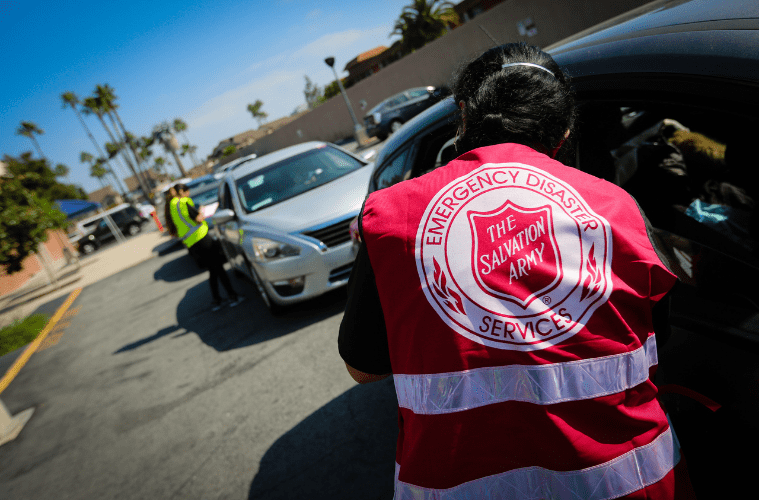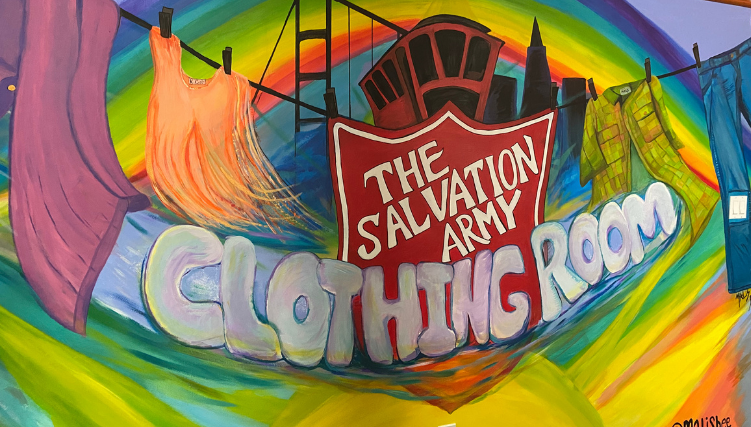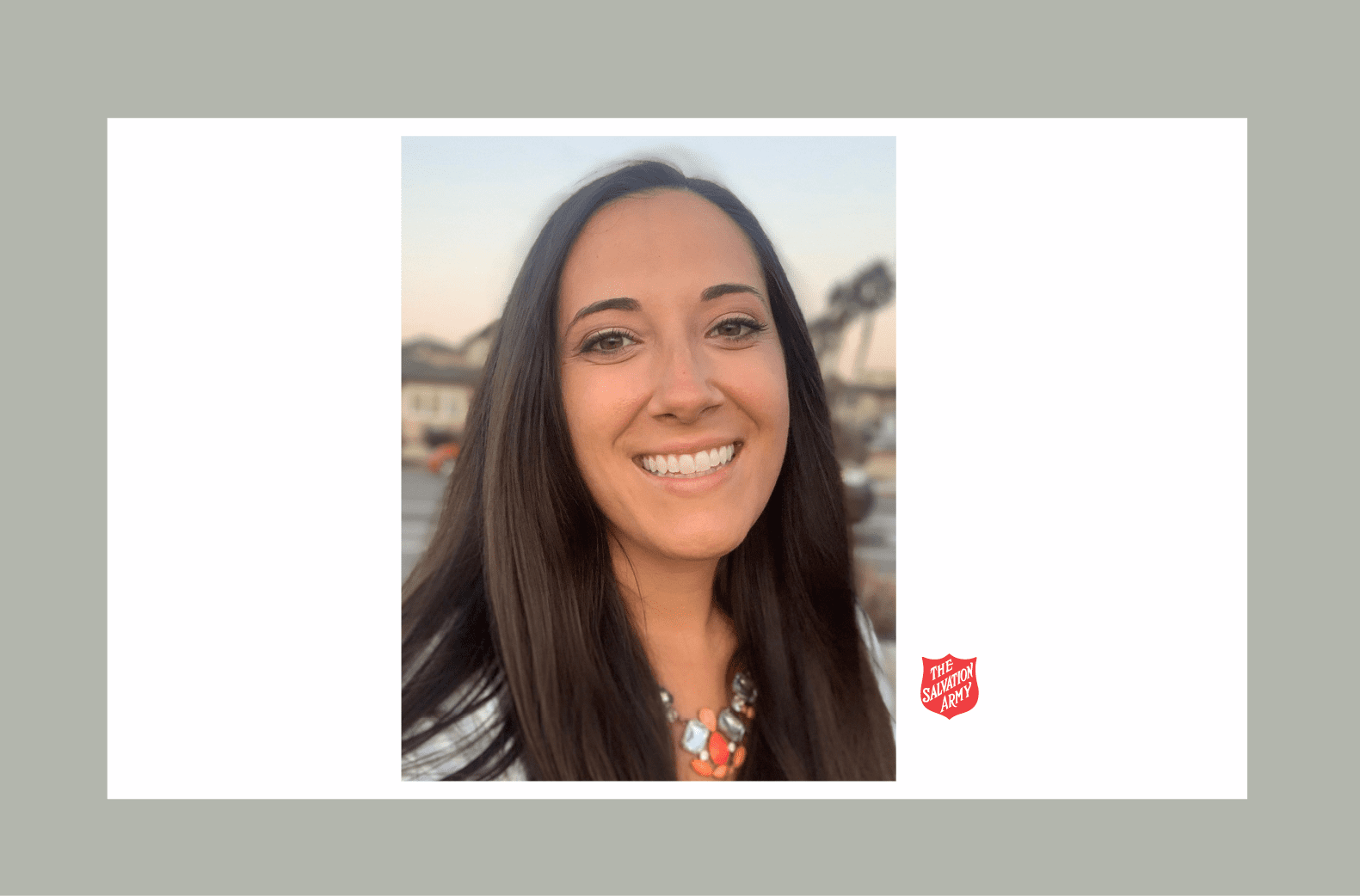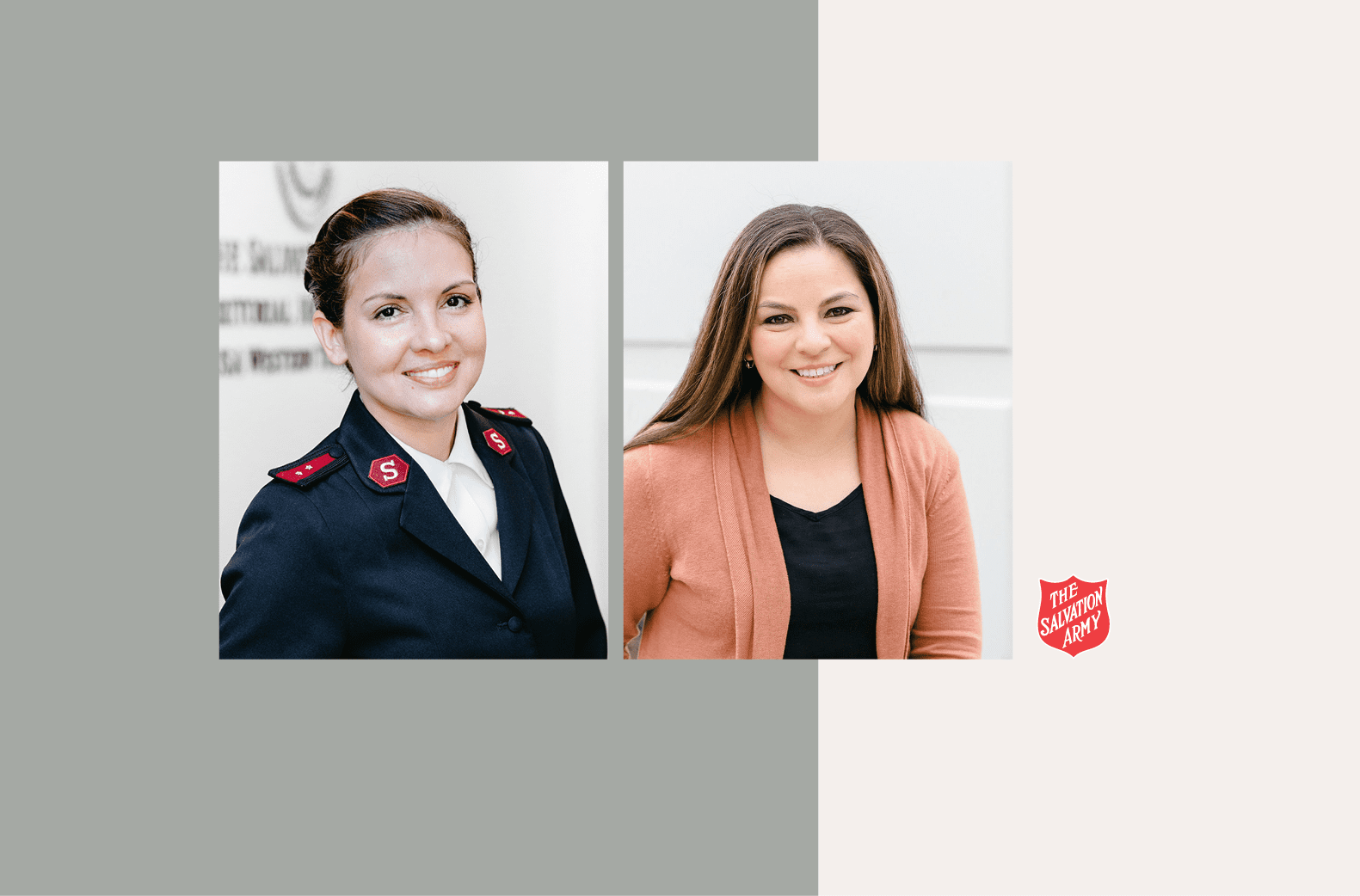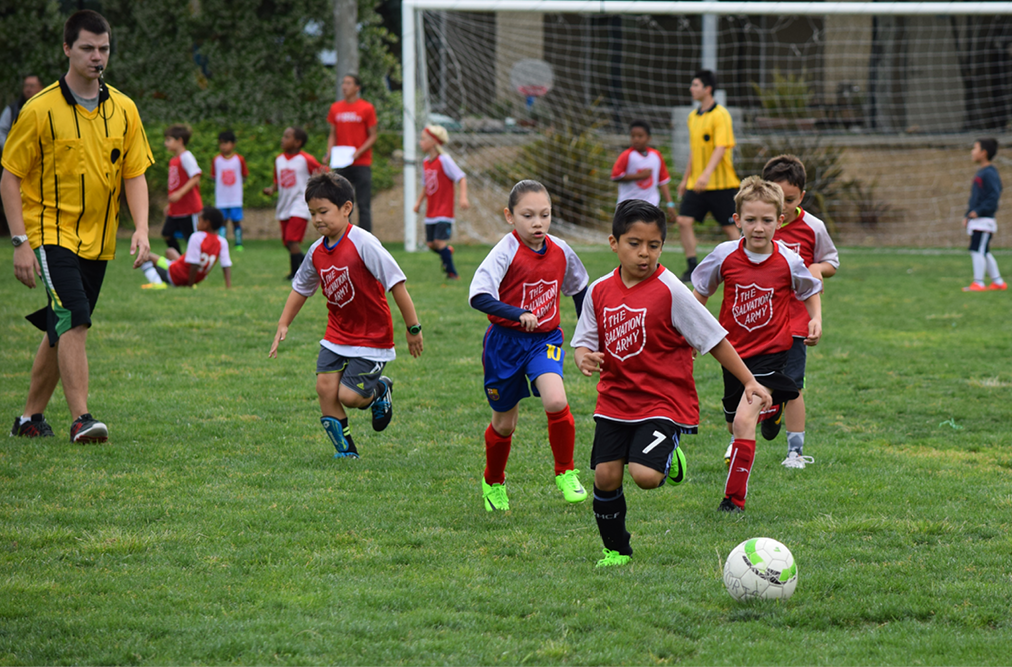This episode discusses depression, self-harm and suicide. If you need someone to talk to when you feel overwhelmed, the National Suicide Prevention Lifeline is available 24/7 at 1-800-273-TALK.
If you struggle with mental illness, you are not alone.
In fact, 1 in 5 U.S. adults and 1 in 6 children experience mental illness each year.
Which can ripple into further issues: a higher risk of developing cardiovascular and metabolic diseases, substance abuse, higher unemployment, high schoolers are more than twice as likely to drop out of school.
Alarmingly, the suicide rate in the U.S. has increased by 35% since 1999.
Is it different in the Church? Are Christians free from struggling with mental illness?
What happens when loving Jesus doesn’t cure you of depression, anxiety or suicidal thoughts?
Maybe you’re told to “choose joy” or “pray more” and you beg God to take away the pain, but nothing eases the ache inside. So you just want a way out.
That’s what Sarah J. Robinson had to fight through as a person of faith—someone in ministry. Now she’s out with a new book, titled: “I Love Jesus, But I Want to Die: Finding Hope in the Darkness of Depression” to help you discover that mental illness doesn’t disqualify you from living a rich, beautiful life in Christ. That there is hope.
Show highlights include:
- Can Christians suffer from mental illness, or are we exempt after being filled with the joy of the Lord?
- How Sarah describes the pain of depression to someone who doesn’t know it intimately.
- Is abundant life possible for those with depression?
- On the beauty, hope and joy ahead even if you don’t experience healing from mental illness.
- Why Sarah wrote this book and what she hopes it does for those who read it.
- A crucial truth about thriving and what you need to develop and apply for any circumstance.
- Why Sarah’s experience didn’t match the promises of God and what she knows now.
- Why we need each other, and what to look for in finding a healthy community.
- How Sarah confided in friends she’d been self harming and how they responded.
- How she learned to care for herself, and what she recommends for others.
- Sarah’s advice on how to help depressed and suicidal loved ones.
- One way to do good today.
Listen and subscribe to the Do Gooders Podcast now. Below is a transcript of the episode, edited for readability. For more information on the people and ideas in the episode, see the links at the bottom of this post.
* * *
Christin Thieme: Sarah, welcome to the Do Gooders Podcast, and thank you so much for being here with us today.
Sarah J. Robinson: Yeah. Thanks so much for having me, Christin.
Christin Thieme: Can I ask you to start: Can Christians suffer from mental illness, or are we by chance exempt somehow after being filled with the joy of the Lord?
Sarah J. Robinson: I think that’s actually a really common misconception—that Christians can’t be depressed or have anxiety, but Christians absolutely can still experience the joy of the Lord, still be saved and love the Lord and can still experience depression, anxiety, bipolar disorder. These things are really not just in our head and in our heart. They’re actually things that are systemic issues in our body. And so it’s completely possible to love the Lord and follow him and commit your whole life to him and still experience depression, anxiety, suicidal thoughts, all of it. In fact, I come from a faith background that really emphasizes the joy of the Lord and that God’s powerful and able to heal and was sort of taught early on that it’s sinful. It’s a lack of faith. That’s a sign that you’re not praying enough, but as I read through Scripture, I see these times where Jesus didn’t always heal everybody.
Jesus didn’t always fix everything for everybody. We think about these amazing miracles he did and how he touched hearts and changed lives. But even in the story at the pool of Bethesda, where he comes up and he heals this man who’s been crippled for, I believe, 38 years, Jesus literally had to step over other people who were sick and had challenges. And it says that there were multitudes of sick people there and he didn’t heal any of them. He just healed this one person. So for whatever reason, sometimes God chooses to walk with us through hard things—through illnesses, through mental illness, through grief and through pain—instead of delivering us from it. And so I think that it is absolutely possible and it’s been really true in my life that I’ve been able to walk with God and still struggle with mental illness.
Christin Thieme: You write in your new book, which releases this week—”I Love Jesus, But I Want to Die,” it’s called. You write that, “The loss of hope for a better future is a dangerous place to be.” How do you describe the pain of depression to someone who doesn’t know it intimately?
Sarah J. Robinson: Hmm, that’s a great question. So I think a lot of times we picture depression as sadness. We think about your stereotypical person who can’t get out of bed because they’re sad and mopey, but it’s so much more than that. It’s intensely physical. For me, it feels like a massive crushing weight on my chest. Sometimes it feels like my skin is burning. Sometimes you feel incredibly numb, which can almost be worse than feeling sad or angry or confused. All of which are very common things with depression. Many people are actually diagnosed with depression or anxiety because of the physical symptoms. So sleep disturbances are really common, either sleeping way too much or not at all, heart palpitations, stomach problems. There’s so much physical pain to it that we don’t really think about or talk about. And the fatigue and the brain fog. You just feel like you are in slow motion and everything’s moving a lot faster around you.
For me, I’ve described it at times as feeling like there’s a pane of glass separating me from the world and I can’t engage in it or feel the things that I should be able to feel. If a friend tells a joke and I’m in a depressive episode, I know it should be funny and make me happy and I should laugh, but I don’t feel those things inside because of that numbness. And with all of that, especially as believers who may have received some of those messages we talked about earlier that you can’t be a good Christian and struggle with depression, there’s an intense amount of shame and guilt that you can’t just choose the joy of the Lord and be happy and be that joyful Christian. And so on top of these immense physical and psychological symptoms, you also just feel like a really horrible Christian, a lot of times, and that to leave you in such a hopeless state that you think this is never going to get better, it’s never going to change. And that’s where it does get really dangerous and where people start to contemplate things like suicide.
Christin Thieme: You wrote that you’re not a therapist, a doctor or a scientist, not a trained theologian. So why did you write this book? What do you hope that it does for those who read it?
Sarah J. Robinson: I hope the biggest thing that it does for those who read it is let them know that they’re not alone and that it really is possible to have a beautiful and fulfilling life with God, despite a mental illness diagnosis. I have been a Christian, gosh for almost 20 years now. And when I first came to faith, we didn’t have these conversations. There were a few books out there that talked about dealing with your thought life and things like that. But they were very spiritually focused and didn’t bring in any of the natural or physical components of mental illness. And they also really weren’t written from the perspective of someone being really honest and saying, “This is what it’s actually like.” But at the same time, I don’t want to just focus on what it’s actually like. I think that’s important because people need to feel seen and known and cared for, and those who don’t struggle with it and need to understand, “Oh gosh, this is what my loved one who’s struggling with this is really experiencing.”
I also really want to show a path that I am just a regular believer. I was able to find a lot of healing and wholeness despite still having bad days, despite still occasionally having an anxiety attack or struggling with depression in the winter when the weather’s terrible. So the big thing is I want you to know that you’re not alone and also that there is a path and there is hope, and that it’s not a death sentence. It’s not something that you’re doomed to always have a miserable life because you have this diagnosis or this experience. There’s a lot of beauty and hope and joy for you even with depression, even with anxiety or bipolar disorder or what have you.
Christin Thieme: I love how you phrased it in the book, you wrote: “There’s beauty, hope and joy ahead for you. You aren’t too fractured to experience it. There’s a richer relationship with the God who loves you and never leaves you. There are wonderful surprises and there’s freedom you can’t yet imagine even if you don’t experience complete healing from mental illness in this life.” I love that. It’s like you said before, maybe it’s not going to go away, but there still is abundant life ahead.
Sarah J. Robinson: There is.
Christin Thieme: And you went on to talk about a crucial truth that you discovered about thriving, that it’s not about being healthy or ill. It’s about having a set of learnable skills that you can develop and apply to any circumstance. Can you share more about that?
Sarah J. Robinson: Absolutely. This was one of the biggest things that really changed my experience for a long time. I believed that I was stuck, that I couldn’t change anything unless God chose to miraculously make me better. But the truth is that God has given us a lot of resources and abilities and tools that we can learn to apply to make our lives better. And that section that you just quoted, I’m referencing some research by Dr. Carol Dweck in a book called “Mindset.” It’s not a Christian book, but it’s really fascinating and really powerful. And the idea is that if we can approach life with a mindset that we can learn things and we can grow and we can get better at things, we have a lot more agency—is the psychological word that you would use—a lot more power, a lot more of a sense of empowerment in your life and realizing that whether or not I thrive in my life is not dependent on whether or not I have depression.
It’s dependent on do I know how to take care of myself? Do I have the skills to cultivate a relationship with God that’s actually healthy and not fear and shame based? Am I learning how to have good boundaries and getting the support I need from doctors and therapists and learning to communicate better with people in my life about things that are important and times I’m struggling? These are all skills that everybody can learn. And it’s not like a magic wand or anything that makes everything go away. But learning that there’s skills that I can apply to my life and tools that I can use to manage my mental health that actually make me feel better. They don’t make me feel a hundred percent, but they make me feel a lot better. They have made walking with Jesus, despite mental illness, a lot more manageable, a lot more hopeful and a lot more joyful. And that’s I believe what it means to thrive in any circumstance.
Christin Thieme: You said at one point that your experience didn’t match the promises of God. What do you mean by that? And what do you know now that maybe you didn’t then?
Sarah J. Robinson: Yeah, so like I mentioned, my faith community that I originally came to faith and really emphasized these things that we saw as promises of God, not just to the people, they were spoken to the people of Israel, but to us today. When it says in the Bible that God wouldn’t put any of the diseases on the Egyptians, that the Egyptians experienced on the Israelites or that Jesus healed all who came to them or the joy of the Lord is your strength or at your right hand that delights forever more.
I didn’t experience those things. I was still depressed. I was still sad. I was still ashamed. I was still experiencing suicidal thoughts. I was still struggling with self-harm and I couldn’t understand why I was trying to do all the right things. I was going to church. I was serving. We were distributing food to those who were hungry in our community. I was at church every time the doors were open. I was trying to spread the gospel. I was doing everything I was told to do—reading my Bible, praying—and it didn’t change anything. And I wasn’t experiencing these things that I was led to believe if I had enough faith, and if I did the right things, like life with Jesus would be easy and good and beautiful.
But now I think I’ve discovered that God never promised to make our lives easy and perfect. Scripture says, “In this world, you will have trouble.” The verse, “I can do all things through Christ.” That we often take to be like, “Yes, my team can win the Super Bowl or whatever.” That’s actually talking about enduring great hardship and we can do that through Christ. We can walk through really hard, overwhelming, terrifying things. And the fact that God is with us in them, to me, is so much more powerful than the hope of being delivered from them. I think it takes a lot more faith and a lot more trust to walk through the dark with God than it does to always have him turn on the light every time things get scary.
Christin Thieme: You write at one point, “It’s hard to hold the attention of a Father who gives good gifts and allows us to endure suffering.”
What about in terms of the people around us? You talk about how people are broken and messy and imperfect and they fail us time and again, but yet you say, I need them anyway. So why do we need people? Why do we need each other? And what should we look for in finding a healthy community?
Sarah J. Robinson: That’s a great question. So one of the things I say in the book, I talk about this idea that people will sometimes say horrible things, but we need them anyway. People especially don’t know how to respond to issues of mental health, because many of them haven’t ever received the tools or the resources to understand what’s going on for someone who’s struggling. So, especially in the Church, a lot of times we experienced these painful responses. We might open up and say, “Hey, I’m struggling with depression.” And someone will say, “Oh, this too shall pass.” Or, “Just pray about it, brother, whatever it is.” And those things can wound us deeply. And many, many people have been wounded by believers, wounded by the Church. And at the same time, we cannot thrive outside of relationship.
We desperately need people who can come alongside us, who even in their failures and mess still love us. And so, as we learn these skills, one of those skills is being able to tell if somebody’s trustworthy, being able to tell if somebody is going to be a good support and being able to tell if a community is a safe place for those who struggle with mental health. So a couple ways to do that practically are, if you’re checking out a church community or a small group, just listen for ways they talk about suffering. They may not specifically mention mental health, but how do they talk about people who are grieving? How do they talk about experiencing hardship? How do they talk about if mental health does come up; do they make positive references to therapy or say they want to walk with people who are struggling?
All of those are really good signs. If you see a leader in a community, that’s talking about their struggles with mental health or talking about their failings, just talking about the mess of life in general, whether it’s times they’ve messed up or things that they’ve experienced, loss, grief, pain, mental illness, that’s a really good sign that’s going to be a safer and healthier community. As far as churches, if they have lists of resources and good therapists to refer people to, that’s a great sign as well.
But the big thing is just learning to listen about how individuals and communities talk about other people’s pain. Is it shut down or is it sort of carried tenderly? And if it is responded to, with tenderness and care, that’s a pretty good sign that your pain will be responded to in the same way. Not always, not perfectly, but it’s a good sign that it’s going to be a healthier and safer place for you.
Christin Thieme: And when it comes to responding, you tell a story that, I imagine, was a monumental moment in your life, where you decided to finally talk to some friends about your own self-harm and even wanting to die. And you say that your friend responded by saying, “I’m not disappointed in you.” Why was that so meaningful? And how should you respond if somebody does confide in you in this way?
Sarah J. Robinson: You’re right. That was a monumental moment in my life. It was so meaningful because I respected these people. I loved them and I knew they loved me, but I felt so much shame. And I was so embarrassed about coming to them and saying, “I’m self-harming, cutting. I want to die. I am a leader in some ways in my church at this point. And yet, I don’t have my stuff together.” And I was so disappointed in myself. And so ashamed of myself, that when they said, “I’m not disappointed in you,” it was rattling and disorienting and seemed completely unfounded. You should be disappointed in me. And those were the first words anyone had ever really spoken to me that really pushed past that shame and even a level of self hatred that I experienced. And when I heard that it just rolled around inside of me.
I couldn’t stop thinking about those words. And over the next few days, I began to think like, “Is it possible if this person isn’t disappointed in me? Is it possible that God’s not disappointed in me? That God’s not upset with me for struggling like this?” And that really was the first thing that gave me hope that God has to love everyone. I thought, but he probably doesn’t like me. He probably really doesn’t want me. He probably wants someone who’s got their stuff together a lot more than I do. But I began after that moment to really believe something a little bit different and start to have hope that God could not just love me, but like me. And so I think that what my friends did in that moment was such a good example. They really didn’t say a lot that night that I showed up on their doorstep. They said, “I’m not disappointed in you. I love you. God’s not upset at you. God still loves you. And we’re going to walk with you through this. We’re going to help you figure it out.” They invited me to stay with them. They actually kind of told me I was going to stay with them. They didn’t really give me the option, but that was just such a simple response.
I think sometimes we’re so afraid of saying the wrong things and we want to jump straight to, “Let’s give them truth. Let’s tell them what they should believe. You shouldn’t be feeling this way. You should have hope. And here’s why.” But the most important thing is to make that person who’s opening up to you feel safe and cared for. And if you can do those two things, that’s going to create so much hope inside of them. And there’s a lot of really simple ways to do that.
Just validating: “Man, it sounds like you’re really hurting. And I’m so sorry you’re hurting.” Asking questions and letting them talk. “How long has this been going on? Is there anything particular in your life that’s contributing to this or making you feel this way? Are there certain times where you feel more depressed?” In my case, I was opening up about self-harm. “Are there certain times or experiences that drive you to that?” And just really seeking to understand that person.
And then the other thing is just letting them know there is help and there is hope and that you want to help them find it. So saying something like, “Hey, I don’t know how to fix this for you, but I know there’s good people who can help and I’d love to help you find them.” Just simple like, “I will help you walk through this.” And unless you’re their therapist, which probably most people listening to this aren’t, it’s not your job to support them alone. It’s your job to be the loving and supportive friend who will walk with them and help point them to the resources that can actually help them get what they need.
Christin Thieme: Absolutely. And there’s actually an appendix in your book all about how to help loved ones who might be depressed or even suicidal with a lot of your advice, which is really a helpful tool for us. So that was the starting point of hope for you. How did you learn to care for yourself?
Sarah J. Robinson: That was really a long road. It was really difficult for me to prioritize taking care of myself. I have this really unhealthy belief that self care was selfish, that it was wrong to put myself first and eventually over the years through a lot of different experiences, I finally found a really good therapist who was able to sit with me and help me kind of unravel some of these beliefs and this pain and get to the bottom of it in a lot of ways. And through that process, I began to realize that I treated myself in ways that I would never treat another person; that I spoke to myself harshly and unkindly, and I would never ever speak to anybody I cared about like that. I would never treat a child the way I treated myself. And so I made a rule for myself that if I didn’t feel like I was worth something, I was going to do it.
So when I didn’t feel like I was worth making a healthy meal, I was going to do it anyway. When I didn’t feel like I was worth taking a break or taking a nap, I was going to do it anyway. And in my mind, I called it being ruthless with self care, regardless of whether I want to, regardless of whether I feel like it, I’m going to start treating myself like I would take care of a beloved child. And that’s really where my concept of self care came from. I think a lot of times we picture bubble baths and pedicures and scented candles as being self care. But really self care is about, it’s almost parenting yourself, like with a kid. If they’re crying or upset, you’re going to soothe them, hold them, kiss their owie, whatever. But you’re also going to make sure they eat their vegetables and take their medicine and go play outside and get fresh air and do their homework.
You’re going to make sure that they’re doing the things that are going to cultivate a healthy and whole life for the long term. And so that’s really what I learned in that season is I’m not being selfish if I want to make myself a good meal or even if I don’t want to. And I prioritize making myself a healthy meal or time to go on a walk or just sit in the sun or whatever. I’m actually cultivating a healthier life that allows me to just be whole for the long term and also have more impact in a positive way. It lets me be more present for others who are hurting. It lets me be more effective in work or ministry or whatever it is I’m doing because it’s that cliche I’m not pouring from an empty well anymore.
Christin Thieme: So we like to end our shows with the question of what’s your best tangible, your one tip for anybody listening on this topic. So for you, when it comes to mental health, what’s your one tip for anybody today on something that we can do today to better take care of our own mental health?
Sarah J. Robinson: Gosh, there are so many tangible ones, but one that I think is the easiest to implement right away is to start eavesdropping on your thoughts and changing how you talk to yourself. So many of us who struggle with our mental health, as I shared about me, there’s some level of shame, self-hatred, really negative self-talk—and by negative self-talk, I mean almost bullying yourself, saying things like, “You’re such an idiot. How could you do this? It’s always going to be like this.” So I just started pretending I was listening to somebody else’s conversation and I would start speaking to myself out loud, when I wasn’t around a bunch of people, but I would say really kind things to myself and it felt so weird. It was so awkward and I hated doing it, but I would picture my niece who, she’s eight now.
But about that time, I think she was about three or four, and I imagine the things that I would say to her, if I heard her say I’m such an idiot, or I mess everything up or I’m always going to be this way. I would say things to myself like, “You’re doing a good job. God is with you. It’s okay. It’s okay to have hard feelings. It’s okay to feel sad or upset. It’s okay to take a break. You’re going to be okay. You’re not always going to feel like this.”
Those two practices. I know they sound so almost cheesy—eavesdropping on your thoughts and speaking kindly to yourself—but those changed so much for me. They changed so much of what it was like to live inside of myself on an everyday basis. And there’s so many other things to do. Seeing a doctor, seeing a therapist, getting in a good community that’s supportive. All of those things are really important, but if we can’t change the way we think about ourselves and change the way we talk to ourselves, then a lot of those things are not going to have the intended effects.
Christin Thieme: Oh wow. Thank you, Sarah. Your book this week is available. So definitely take a look at Sarah’s new book. It’s titled, “I Love Jesus, But I Want to Die: Finding Hope in the Darkness of Depression.” Sarah, thank you so much for sharing with us today and for sharing your story.
Sarah J. Robinson: Thank you so much, Christin. It’s been a joy.
Additional resources:
- Read “I Love Jesus, But I Want to Die: Finding Hope in the Darkness of Depression” (WaterBrook, 2021) by Sarah J. Robinson.
- Find 10 mental health resources to bring you hope and peace.
- Get inside the Caring Magazine Scripture Study Collection and find a suite of free, downloadable Bible studies to guide you through topics from New Beginnings Through Forgiveness, to Understanding our Imago Dei or Life Hacks From David.
Listen and subscribe to the Do Gooders Podcast now.












